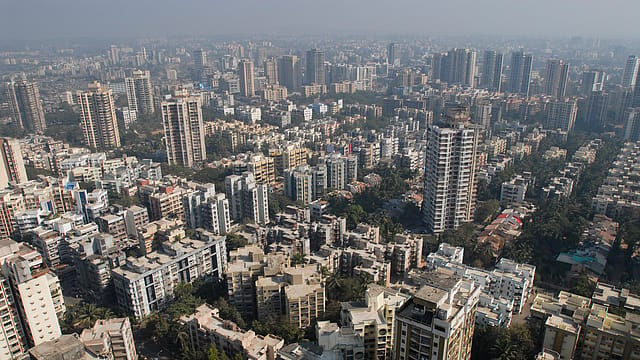Covid-19 stuns the real estate sector
ADVERTISEMENT

The Covid-19 pandemic is slated to have a “catastrophic effect” on India’s troubled real estate sector, which is currently worth around $12 billion. According to the Indian Chamber of Commerce (ICC), “The real estate sector, already in a slump since last year, is presently experiencing almost 65% payment default from customers paying the instalments linked to construction.”
Besides, the lockdown has created a drastic drop in residential sales with no clarity on a revival. “New launches [of residential units] may also witness a 25%-30% decline to anywhere between 166,000-178,000 units (as compared to 261,000 units in 2019),” said ICC.
Within the residential space, the affordable housing segment (in which units are priced below ₹50 lakh) seems to be the worst hit. According to property consultancy firm Anarock, 610,000 affordable housing units were under construction across the top seven cities in the country until the lockdown was announced. This is over 39% of the total 1.56 million under-construction units in the top seven cities—the highest share of all budget categories.
“The target audience typically has limited income and unemployment fears currently loom large. This could result in deferred property purchase decisions in 2020 and ultimately derail the segments’ growth momentum. As a result, unsold affordable stock can rise by 15%-2% on a y-o-y basis,” said Anuj Puri, chairman, Anarock Property Consultants.
January 2026
Netflix, which has been in India for a decade, has successfully struck a balance between high-class premium content and pricing that attracts a range of customers. Find out how the U.S. streaming giant evolved in India, plus an exclusive interview with CEO Ted Sarandos. Also read about the Best Investments for 2026, and how rising growth and easing inflation will come in handy for finance minister Nirmala Sitharaman as she prepares Budget 2026.
At present, international trade restrictions have halted the supply of essential raw materials to the real estate sector. And China, which has been the epicentre of the Covid-19 pandemic, happens to be the biggest supplier of raw materials such as steel to the Indian real estate industry. Therefore, the present crisis could lead to a shortage of supplies and a subsequent price escalation.
Overall, Niranjan Hiranandani, president of industry body NAREDCO, estimates that the real estate sector has piled up losses to the tune of ₹1 lakh crore, which continues to rise with each passing day. After the pandemic, he estimated delays in ongoing projects to range from three months to a year and half, depending upon the stage of the project and location, among other factors.
ICC has put forward a suggestion that the real estate sector should be supported by all state governments by way of a waiver of “municipal taxes for at least one quarter”. Additionally, “organisations which are not able to clear up taxes or bills should not be penalised and be given around three to six months time for repayment of the same”.
NAREDCO vice chairman Parveen Jain believes that RERA timelines should be increased by a year as it would give developers adequate time to fulfil the mandatory compliances in order to commence their projects. “Real estate projects need multiple compliances such as fire safety, environment, building plans and licence etc. These in general take time. But due to the current lockdown, the process has become even more complicated and tardy. Hence an extension by a year would help the industry in a big way,” Jain said.
